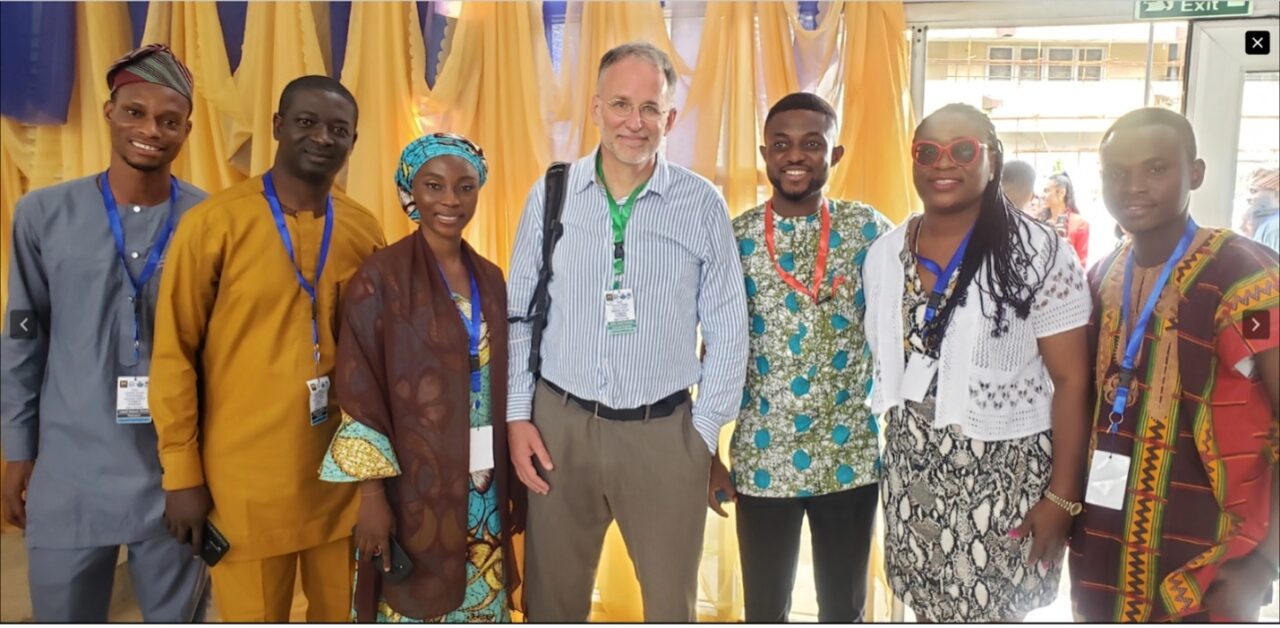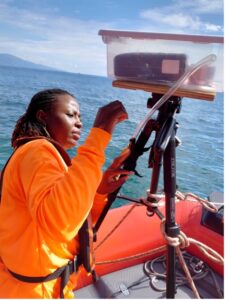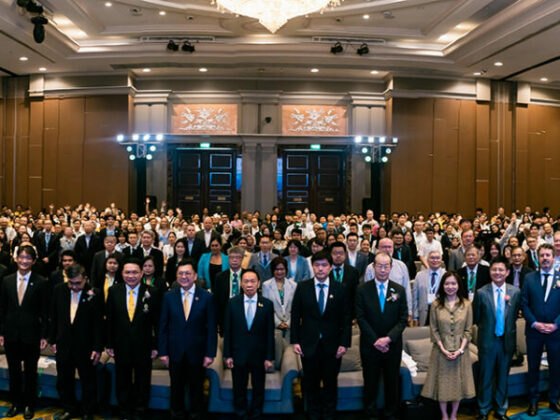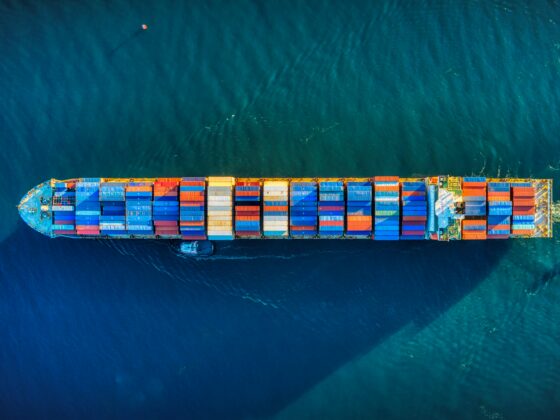In the pursuit of advancing our understanding of the ocean, we face a crucial challenge to facilitate equitable access to ocean skills, knowledge, and technology. Challenge 9 “Skills, knowledge, and technology for all” of the United Nations Decade of Ocean Science for Sustainable Development 2021-2030 (‘Ocean Decade’) stands as a commitment to ensure comprehensive capacity development and equitable access to these resources across all facets of ocean science.
Currently, global disparities persist among nations, with technical infrastructure and capacities concentrated in the Global North. Additionally, there are significant variations in age and gender representation, with only an average of 38% of women involved in the field of ocean science.
The Ocean Decade recognizes these imbalances and the hindrance they pose to scientific progress and the equitable distribution of benefits derived from the ocean. With the aim of addressing these disparities systematically, Ocean Decade Challenge 9 strives to fill the gaps in ocean science recognition, representation, and resource distribution worldwide.
Established within the context of the Vision 2030 process, Working Group 9 is crafting a targeted and strategic ambition for Challenge 9. It is led by co-chairs Brian Arbic, Professor of Physical Oceanography at the University of Michigan, USA, and Edem Mahu, Senior Lecturer of Marine Geochemistry at the University of Ghana, who bring a wealth of experience and research expertise from their fields.
Brian Arbic specializes in supercomputer modeling of oceanic flows to provide valuable information about the ocean’s layers and movements. Edem Mahu’s research encompasses a wide range of areas including past climate reconstruction, coastal upwelling, ocean productivity and nutrient dynamics, pollution of coastal systems, ocean acidification, and nature-based solutions for coastal hazard mitigation. She also leads the BIOTTA project (Building Capacity in Ocean Acidification in the Gulf of Guinea), which coordinates effort in ocean acidification monitoring.
To advance ocean science in West Africa, the two co-chairs jointly lead the annually-held Coastal Ocean Environment Summer School in Nigeria and Ghana, aimed at building capacity in oceanographic and environmental sciences.

Under their guidance, Working Group 9 endeavors to promote international and interdisciplinary collaboration, equitable knowledge sharing, open data policies, and inclusive capacity-building initiatives to ensure that the benefits of ocean science are equally accessible around the globe.
Emphasizing the foundational and interconnected nature of Challenge 9, Brian Arbic said: “Distributing more widely the resources required for high-quality ocean research will make it easier to address all other Ocean Decade Challenges.”
After a year-long collaborative work, the Group has identified the key components of success for Challenge 9 on the road to 2030. Among them, the proportionate and broad distribution of ocean capacity, a more diverse and inclusive community of ocean scientists, as well as increasing equitable funding and educational opportunities. These elements will pave the way for a balanced and sustainable approach to global ocean science that leaves no one behind and recognizes different forms of knowledge.

Edem Mahu, Senior Lecturer of Marine Geochemistry at the University of Ghana.
“Challenge 9 is a critical step in the Ocean Decade, as it provides equal opportunities for all, irrespective of geography, gender, or generation, to participate equally and effectively in ocean science without any barriers or limitations,” explained Edem Mahu.
In this context, Working Group 9 promotes a more inclusive community of ocean professionals engaged in natural science research and human-ocean interactions. It also underscores the need for more targeted Decade Actions that address inequalities in ocean science capacity, calling for increased collaboration between the Challenges to amplify their collective impact.
The call for action is clear – the collective efforts and commitments of the global community are imperative in confronting disparities in ocean science. On the path to 2030, our aspiration is to achieve equitable sharing of ocean resources through access to knowledge, skills, and technology in every corner of the world.
The Ocean Decade transformative journey to 2030
Between 22 يناير and 22 فبراير 2024, the global ocean community participated in the review process of the white papers developed by the 10 Working Groups of Vision 2030.
The final draft versions will be presented and debated during ‘Session 4 – An Inspiring and Engaging Ocean for All’ on 10:00-11:00 on 12 أبريل at the 2024 Ocean Decade Conference in Barcelona, a pivotal event for the Vision 2030 process. The public will be able to follow the session via livestream; the link will be available soon.
The outcomes of discussions will feed into the final version of the documents.
Click here to meet Working Group 9 and find out more about the Vision 2030 process.
لمزيد من المعلومات، يرجى الاتصال ب:
فريق رؤية 2030 (vision2030@unesco.org)
***
حول عقد المحيطات:
يسعى عقد الأمم المتحدة لعلوم المحيطات من أجل التنمية المستدامة (2021-2030) (عقد المحيطات) الذي أعلنته الجمعية العامة للأمم المتحدة في عام 2017 إلى تحفيز علوم المحيطات وتوليد المعرفة لعكس اتجاه تدهور حالة نظام المحيطات وتحفيز فرص جديدة للتنمية المستدامة لهذا النظام الإيكولوجي البحري الضخم. إن رؤية عقد المحيطات هي "العلم الذي نحتاجه للمحيطات التي نريدها". ويوفر عقد المحيطات إطارا لعقد الاجتماعات للعلماء وأصحاب المصلحة من مختلف القطاعات لتطوير المعارف العلمية والشراكات اللازمة لتسريع وتسخير التقدم المحرز في علوم المحيطات من أجل تحقيق فهم أفضل لنظام المحيطات، وتقديم حلول قائمة على العلم لتحقيق خطة عام 2030. وكلفت الجمعية العامة للأمم المتحدة اللجنة الأوقيانوغرافية الحكومية الدولية التابعة لليونسكو بتنسيق الأعمال التحضيرية للعقد وتنفيذه.
نبذة عن اللجنة الأولمبية الدولية/اليونسكو:
تشجع اللجنة الأوقيانوغرافية الحكومية الدولية التابعة لليونسكو التعاون الدولي في مجال العلوم البحرية لتحسين إدارة المحيطات والسواحل والموارد البحرية. وتمكن اللجنة الأوقيانوغرافية الحكومية الدولية دولها الأعضاء البالغ عددها 150 دولة من العمل معا من خلال تنسيق البرامج في مجالات تنمية القدرات، ومراقبة المحيطات وخدماتها، وعلوم المحيطات، والإنذار بأمواج تسونامي. يساهم عمل اللجنة الأوقيانوغرافية الحكومية الدولية في مهمة اليونسكو المتمثلة في تعزيز تقدم العلوم وتطبيقاتها لتطوير المعرفة والقدرات ، وهي مفتاح التقدم الاقتصادي والاجتماعي ، وأساس السلام والتنمية المستدامة.


